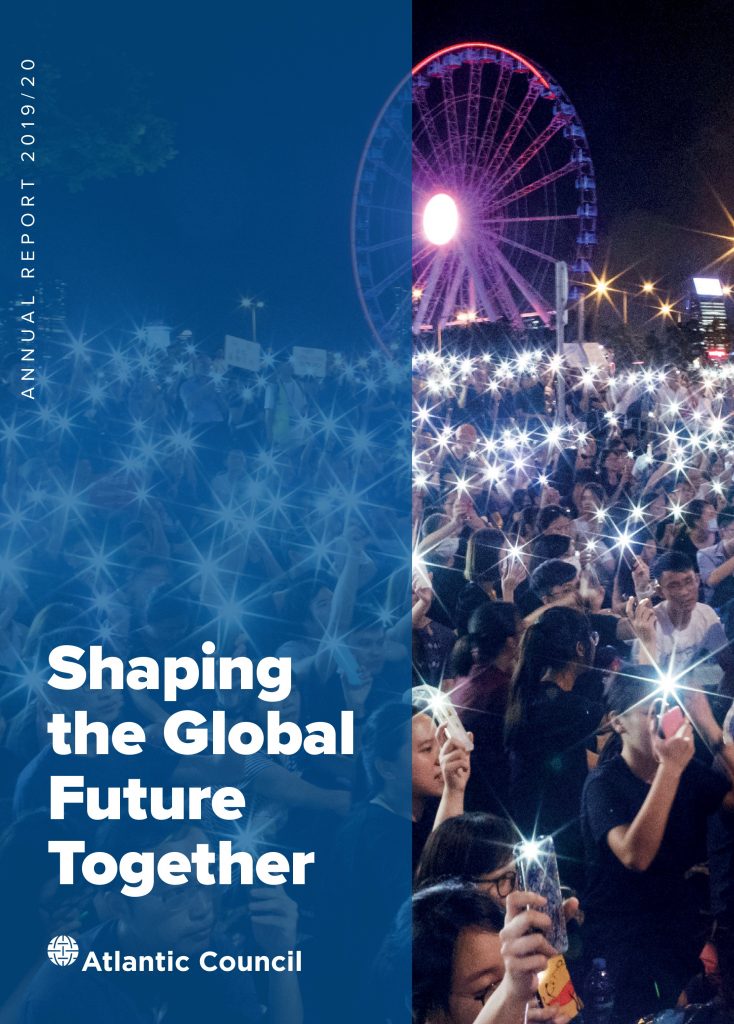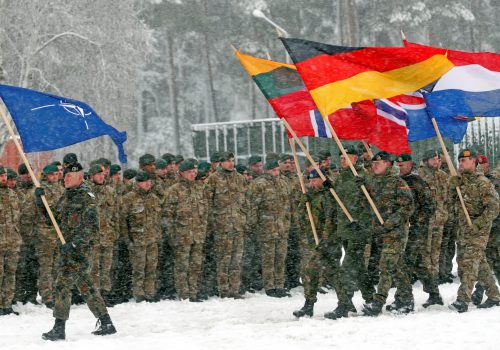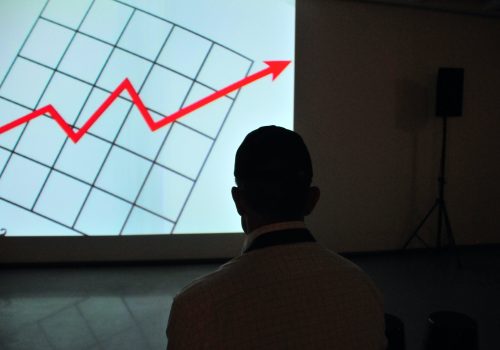Global Business & Economics Program
Transforming for a New Era in the Global Economy.
There is an urgent need to restore confidence in US global economic leadership and the open, rules-based system it has championed for seventy-five years. To rejuvenate the post-war economic order, and rebuild trust in capitalism, the United States and its allies must understand and adapt to the changing global economy. Therefore, the program is pivoting to relaunch as the GeoEconomics Center in 2020 to establish itself as the go-to place at the intersection of economics, finance, and foreign policy.
The GeoEconomics Center will build on the work of the Global Business & Economics Program (GBE). In 2019, GBE expanded its sanctions and trade portfolio, and added a group of senior fellows to deepen the program’s intellectual capital.
Expanding the sanctions initiative’s policy input and reach: GBE took its sanctions work beyond the Beltway to key markets including New York, London, and Brussels. The Economic Sanctions Initiative serves as a bridge between the current US administration, the US Congress, and European allies on questions of sanctions policy. Under Ambassador Dan Fried’s leadership, the initiative has built a constructive relationship with both the executive and legislative branches.
Shaping facts-based trade dialogue: GBE broadened its transatlantic trade focus and put a greater emphasis on China, the United States-Mexico-Canada Agreement (USMCA), Latin America, and the future of the World Trade Organization (WTO). High-level public and private events with speakers such as EU Trade Commissioner Cecilia Malmstrom, a deep bench of first-rate experts, a steady stream of publications, and having a presence at trade conferences and corporate summits, allowed GBE to elevate its trade coverage in 2019.
Building a gender balanced roster of fellows: In 2019, GBE added a number of younger, highly qualified female fellows to improve the age and gender balance of the program’s roster.
Strategy for 2020: History accelerates after a crisis. This will be the reality of the post COVID-19 world.
The GeoEconomics Center will be a collaborative and innovative part of the Atlantic Council and, through partnerships, will leverage the existing top-level Council workstreams on energy, climate policy, national security, and technology. The center will organize around three pillars central to the future of the global economy and US economic leadership: the future of capitalism, the future of money, and the way forward on economic statecraft. These pillars are critical to ensure that free markets and international economic cooperation will remain the best architecture to enable human potential.
Within these pillars, a project on inclusive growth will examine the economic fractures which existed before COVID-19, including the rise of wealth, income, and intergenerational inequality within advanced economies. Our work will assess the consequences of climate change, low productivity growth, excessive inequality, and automation on countries’ social infrastructure. The project will highlight how empowering women and minorities can be an economic gamechanger in all types of economies, and the policies needed to realize these gains— from health care to taxes to streamlined regulations. Through research and events, the GeoEconomics Center will develop a blueprint for reform of the Bretton Woods institutions and the WTO, with a particular focus on grappling with China’s future role and its competitor model.
The 2020s will be the decade in which the concept of money is redefined. Therefore, the team will develop content and programming around the future of the Euro, the rise of digital currencies, and the US dollar’s uncertain destiny as the world’s reserve currency. Among other issues, the center will explore whether the EU monetary union will become a fiscal union, inform policy on the development of central bank digital currencies (CBDCs), and highlight the impact of massive federal reserve liquidity on the global economy.
Finally, the GeoEconomics Center will strengthen the Council’s ongoing work on sanctions while broadening the aperture to consider the range of tools, including tariffs, that US policy makers can deploy. The Economic Statecraft Initiative will look at the future of the transatlantic trading partnership, outline how US and EU regulatory policies can better align to unleash both partners’ full economic potential, and examine the increase of illicit financial flows across the world and how strategic competitors and adversaries to the United States are developing sophisticated systems to avoid detection.
This is the time for Geoeconomics. The United States can once again energize the world with creative and collaborative economic leadership. But it will be impossible without adaptation, and without a substantive understanding of how economics, finance, geopolitics, and diplomacy interact every day on the world stage.
Next:
Read the full report:

Annual Report 2019/2020
John FW Rogers, Chairman of the Atlantic Council, and Fred Kempe, CEO and President, explain how our past year’s performance, and a dozen years of growth and innovation, helped position us for the historic disruptions of 2020. Read the full introduction.
Image: Image: Chinese Vice Premier Liu He welcomes US Trade Representative Robert Lighthizer and Treasury Secretary Steven Mnuchin in Shanghai, China, July 31, 2019. REUTERS/Nghan Guan



